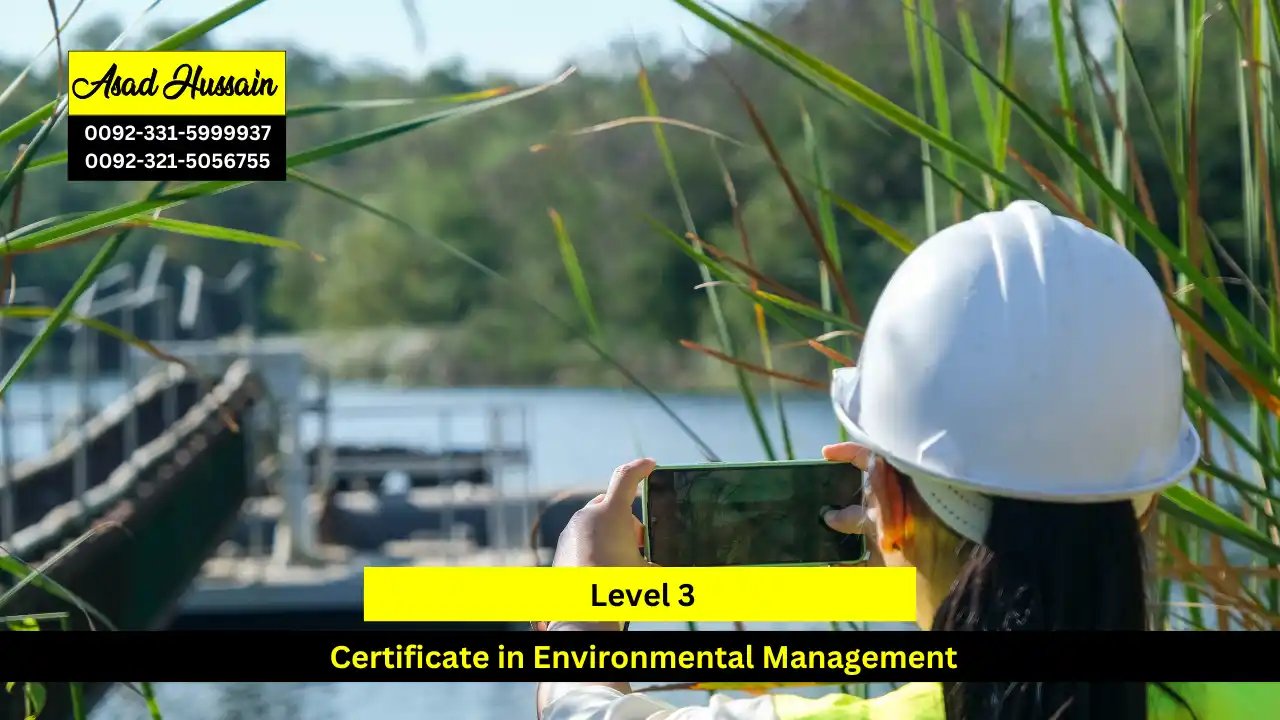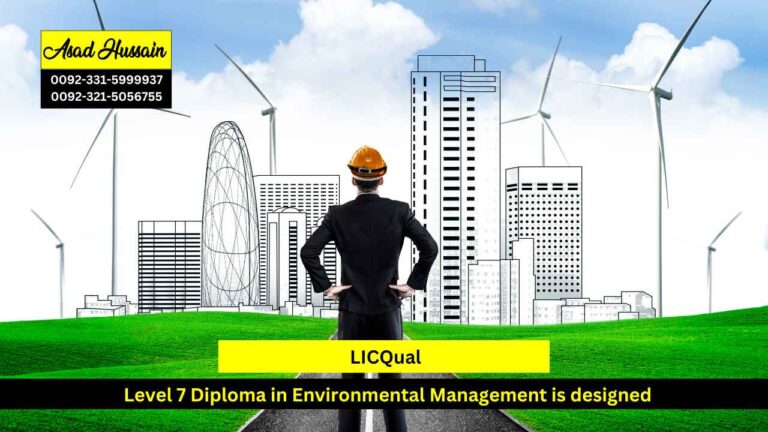In today’s global landscape, environmental sustainability and regulatory compliance are paramount concerns for businesses and organizations across all sectors. The Level 3 Certificate in Environmental Management, awarded in the UK, stands as a vital credential for professionals looking to navigate these challenges effectively. This certification not only equips individuals with essential knowledge and skills but also underscores their commitment to environmental stewardship and corporate responsibility.
The Level 3 Certificate in Environmental Management is designed to provide participants with a comprehensive understanding of environmental principles, regulations, and management practices. Recognized by accredited UK bodies, this certification signifies proficiency in key areas such as environmental legislation, sustainable practices, risk assessment, and pollution control measures. It serves as a testament to an individual’s ability to contribute to sustainable development goals while ensuring compliance with legal requirements.
In conclusion, the Level 3 Certificate in Environmental Management is not just a qualification but a commitment to fostering sustainable practices and ensuring environmental compliance within organizations. By obtaining this certification, professionals can play a crucial role in safeguarding the environment, enhancing corporate reputation, and contributing to a more sustainable future. Whether you are looking to advance your career or make a meaningful impact in environmental management, this certification sets you on a path towards success and leadership in the field.
Are you ready to take the next step in your environmental management journey? Explore the Level 3 Certificate in Environmental Management and embark on a rewarding career path dedicated to sustainability and compliance.
Program Highlights
Mandatory Units
- Unit 1. Introduction to Environment
- Unit 2. Environmental Management Systems
- Unit 3. Environmental Planning
- Unit 4. Global Environmental Issues
- Unit 5. Modern Environmental Management
- Unit 6. Energy Management
- Educational Background: Candidates are typically required to have a minimum of Level 2 qualifications (GCSEs or equivalent) in relevant subjects such as Science, Geography, Environmental Studies, or related disciplines. This ensures a foundational understanding of environmental concepts and principles.
- Work Experience: While not always mandatory, some courses may require applicants to have relevant work experience in environmental management, sustainability, or related fields. This experience helps demonstrate practical knowledge and application of environmental practices.
- Language Proficiency: For non-native English speakers, proof of English language proficiency may be required. This is typically demonstrated through an English language test such as IELTS or equivalent, with a minimum score as specified by the course provider.
- Interview or Assessment: In certain cases, applicants may be required to attend an interview or undergo an assessment to evaluate their suitability for the course. This interview may assess motivation, understanding of environmental issues, and potential for success in the program.
- Additional Requirements: Depending on the institution offering the course, additional requirements such as a personal statement, references, or a CV may be requested to support the application.
Introduction to Environment
- Fundamental Concepts: Understand fundamental concepts and principles related to the environment, including ecosystems, biodiversity, and natural resource management.
- Environmental Awareness: Develop awareness of environmental issues and their impact on local and global scales, fostering a sense of responsibility for environmental stewardship.
Environmental Management Systems
- System Implementation: Gain knowledge of environmental management systems (EMS) frameworks, such as ISO 14001, and their implementation in organizational settings.
- Compliance and Improvement: Learn how to ensure compliance with environmental regulations and continuously improve environmental performance through systematic approaches.
Environmental Planning
- Strategic Planning: Develop skills in environmental planning and strategy development, including setting objectives, conducting environmental assessments, and establishing sustainability goals.
- Risk Assessment: Conduct environmental risk assessments and develop mitigation strategies to minimize environmental impacts and enhance resilience.
Global Environmental Issues
- Global Challenges: Explore major global environmental issues such as climate change, deforestation, pollution, and resource depletion, understanding their interconnected nature.
- International Cooperation: Evaluate international agreements and initiatives aimed at addressing global environmental challenges, and analyze their effectiveness and implications.
Modern Environmental Management
- Innovative Practices: Investigate modern environmental management practices, including green technologies, circular economy principles, and sustainable development strategies.
- Corporate Responsibility: Understand the role of businesses and organizations in promoting sustainable practices and mitigating environmental impacts through innovative management approaches.
Energy Management
- Energy Efficiency: Learn strategies for optimizing energy use and improving energy efficiency in industrial, commercial, and residential settings.
- Renewable Energy: Explore the integration of renewable energy sources and technologies into energy management plans, promoting sustainable energy practices and reducing carbon footprints.
The Level 3 Certificate in Environmental Management is tailored for individuals who are passionate about environmental sustainability and wish to deepen their understanding of environmental principles and practices. This course is ideal for aspiring environmental managers, sustainability coordinators, and professionals across various sectors seeking to integrate environmental considerations into organizational strategies. It is also beneficial for those currently working in environmental roles who aim to formalize their knowledge and skills with recognized certification. Whether you’re looking to enhance your career prospects, contribute meaningfully to environmental stewardship, or pursue further studies in environmental sciences, this course provides a solid foundation and practical insights into managing environmental issues effectively within a professional context.







